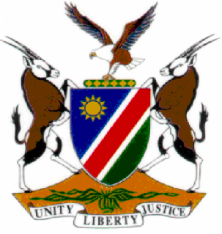REPUBLIC OF NAMIBIA REPORTABLE

HIGH COURT OF NAMIBIA, MAIN DIVISION
REVIEW JUDGMENT
CR No: 61/2017
In the matter between:
THE STATE
and
RICARDO SNYDERS
Neutral citation: S v Snyders (CR 61/2017) [2017] NAHCMD 287 (10 October 2017)
CORAM: LIEBENBERG J and SHIVUTE J
DELIVERED: 10 OCTOBER 2017
Flynote: Section 51 (3) of Act 22 of 1999 – Obligatory disqualification from obtaining drivers licence – Accused convicted of contravening s 82 (1)(a) of the Act - Driving under the influence of intoxicating liquor- Accused not holder of a driving licence – Court apart from imposing a sentence, shall declare such person to be disqualified from obtaining a learner’s licence or driving licence for such period as the court may determine – Natural Justice demands that court should explain provisions of s 51 (3) – Accused to be afforded opportunity to address Court as to why such an order should not be made.
ORDER
The conviction and sentence are confirmed.
The order declaring the accused to be disqualified from obtaining a driver’s licence is set aside.
The matter is remitted to the magistrate in terms of section 312 of the Criminal Procedure Act 51 of 1977 to enable the court to explain to the accused the implications of the provisions of s 51 (3) and to invite the accused to make representations as to why he should not be barred from obtaining a driver’s licence before such an order is made.
REVIEW JUDGMENT
SHIVUTE J, (LIEBENBERG J CONCURRING)
[1] The accused was convicted of contravening s 82(1)(a) of the Road Traffic and Transportation Act 22 of 1999 - driving a motor vehicle while under the influence of intoxicating liquor.
[2] He was sentenced to pay a fine of N$ 4000 (four thousand Namibian dollars) or to 12 months imprisonment. Coupled with this sentence, the magistrate applied the provisions of s 51 (3) of the Road Traffic Act, which reads:
‘If a person convicted of an offence mentioned in subsection (1) is not the holder of a driving licence, the court, apart from imposing a sentence, shall declare such person to be disqualified from obtaining a learner’s licence or driving licence for such period as the court may determine, but not being less than the minimum period contemplated in paragraph (a), (b) or (c) of subsection (2), as may be applicable.’
[3] Before the accused was declared to be disqualified from applying for a driver’s license, he was not afforded an opportunity to address the court as to why he should not be disqualified from obtaining a driver’s licence. I queried the learned magistrate as to why the provisions of s 51 (3) of the Act were applied without giving the accused the opportunity to address the court as to why he should not be disqualified from obtaining a driving licence. The learned magistrate rightly conceded and stated that it was an oversight on her part.
[4] Damaseb JP stated in S v Willem (CR 57/2014) [2017] NAHCMD 264 (11 September 2017) that:
‘The tenets of natural justice dictates that persons likely to be affected by a decision of a court or tribunal must be afforded an opportunity to make representations before a decision is made.’
He further referred to, The State v Japhet Nekaya (CR 19/2017) [2017] NAHCMD 70 (10 March 2017) (unreported), where Liebenberg J, correctly observed the following:
‘[3] The provisions of s 51 must first be explained to accused where after he be afforded the opportunity to lead evidence and/or address the court as to the period for which his licence should be suspended.’
[5] The provisions of s 51(3) are obligatory and they must be adhered to without any exception in relation to the provisions of s 82(1). However, before the provisions are invoked, the doctrine of Natural Justice demands that the Court should explain to an unrepresented accused the implications of the provisions and should allow the accused to make representations in that regard.
[6] In the present matter this was not done. However, I have no problem with the conviction as well as the sentence imposed. But since the learned magistrate failed to explain the provisions of s 51 and failed to afford the accused the opportunity to make representations as to why the court must not make such an order, the order cannot be allowed to stand. In view of this, the matter is remitted to the magistrate to explain the implications of the provisions of s 51(3) and invite the accused to make representations why he should not be barred from obtaining a driver’s licence before such an order is made.
[7] In the result, I make the following order:
The conviction and sentence are confirmed.
The order made by the magistrate declaring the accused to be disqualified from obtaining a driver’s licence is set aside.
The matter is remitted to the magistrate in terms of section 312 of the Criminal Procedure Act 51 of 1977 to enable the court to explain to the accused the implications of the provisions of s 51 (3) and to invite him to make representations as to why he should not be barred from obtaining a driver’s licence before such an order is made.
_________________
NN SHIVUTE
JUDGE
_________________
JC LIEBENBERG
JUDGE
Cited documents 4
Judgment 2
- S v Nekaya (CRIMINAL 19 of 2017) [2017] NAHCMD 70 (10 March 2017)
- S v Willem and Others (57 of 2017) [2017] NAHCMD 264 (11 September 2017)